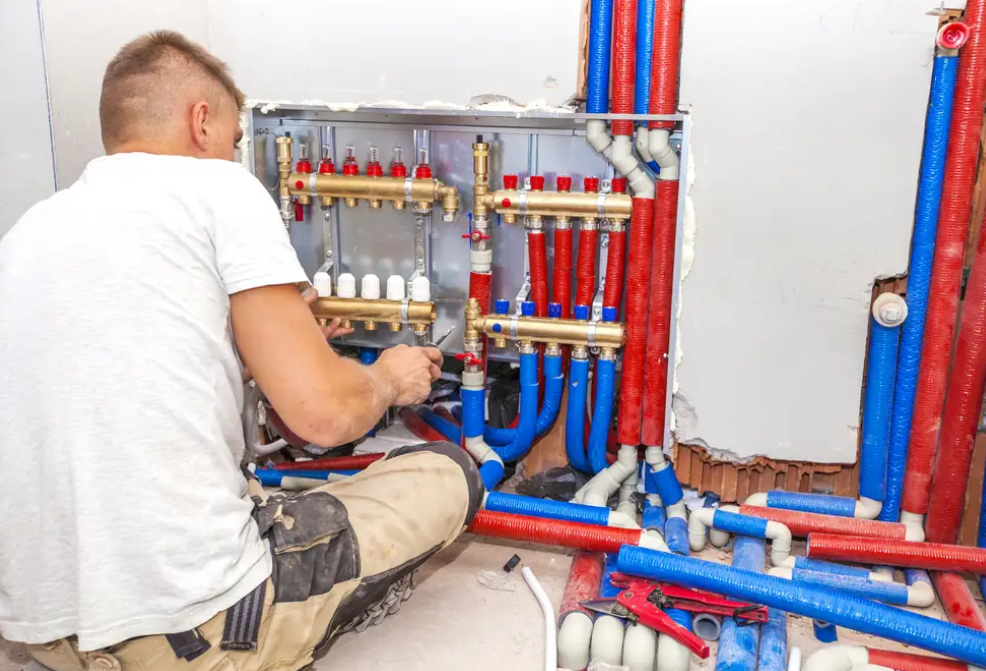Choosing the right heater for your home can be simple or an investment. Should you choose the latter, comfort, efficiency, and long-term savings should be at the top of your priorities.
As local experts in heating repair in Milford, NH, we understand that buying a new heating system can feel overwhelming due to the variety of options available. Fortunately, understanding what each system offers makes it easier to find the perfect fit for your space and lifestyle.
Central Heating Systems
Central heating systems remain a trusted choice by many. These systems deliver consistent warmth throughout multiple rooms. Furnaces and boilers dominate this category, each with its strengths.
Furnaces work by heating air and distributing it through a network of ducts. Whether powered by gas, oil, or electricity, they excel at quickly warming up a space, making them ideal for homes in colder regions. Their straightforward operation and wide availability keep them popular, though they may require regular maintenance to keep running efficiently.
Boilers heat water, which is then circulated through radiators or underfloor pipes. This creates an even, soothing warmth that avoids the dryness associated with forced air systems. While the cost of boiler installation can be higher, this initial investment can be offset by their durability and consistent performance over time.
Heat Pumps
Heat pumps offer a modern, versatile, and energy-efficient way to maintain a comfortable indoor climate. Unlike traditional systems, they don’t generate heat but transfer it from one location to another.
Air-source heat pumps draw warmth from the air outside and move it indoors. They are straightforward to install and can double as cooling systems during warmer months, making them a practical year-round option in moderate climates.
Ground-source, or geothermal, heat pumps take efficiency to another level. They provide reliable heating with significantly reduced energy use as they tap into stable temperatures underground to generate heat. The long-term benefits in savings and sustainability offered by this system are undeniable. However, those leaning toward buying this should know that the upfront installation process is more involved.
Space Heaters
Space heaters are simple and practical heating solutions, helping fill the gap when you need localized warmth. They offer flexibility without committing to a whole-home system.
Electric models are easy to use, portable, and safe for indoor spaces, working best in smaller areas where central heating might feel excessive. This system is best suited as a supplemental heating option.
Propane or kerosene space heaters may suffice for garages, workshops, or well-ventilated areas. These units provide powerful heat but require careful handling due to emissions. Their ability to quickly warm up large, open spaces makes them invaluable in specific scenarios.
Radiant Heating
Radiant heating provides a luxurious alternative to traditional methods, offering silent, even warmth that eliminates the drafty feeling of forced air.
Hydronic radiant systems use water heated by a boiler, circulating through pipes embedded in floors. This creates a comfortable, steady heat that feels as natural as sunlight. These systems are energy-efficient and particularly suited for colder climates.
Electric radiant systems, while less efficient on a larger scale, work wonders in small areas like bathrooms or kitchens. They’re easier to install and add a layer of comfort that’s hard to match, especially during colder months.
What to Consider When Choosing
Your choice of heater hinges on several factors, starting with the climate where you live. Cold winters might demand the strength of a furnace or radiant heating. If you live near South New Hampshire, where winters are warmer on average, you can benefit from the energy efficiency offered by a heat pump.
The size and layout of your home also matter. Larger spaces often require centralized systems to maintain consistent warmth, while smaller homes or individual rooms may thrive with space heaters or radiant options.
Energy costs and availability add another layer of consideration. If natural gas is readily accessible, a furnace might be the most cost-effective option. In contrast, homes relying on electricity can benefit from the efficiency of heat pumps or electric radiant systems.
When in doubt, get in touch with experts from a reputable heating repair company for input on the best choice for your home.
Why Timing Matters
Delaying an upgrade or replacement can lead to higher energy bills, uneven temperatures, and unexpected breakdowns. Waiting too long may result in emergency repairs, processes more disruptive and costly than planned replacements.
Having the right type of heating helps you live comfortably, regardless of how cold it is outside. When choosing the best residential heater for your home, be sure to understand your needs and compare your options. Doing so allows you to select a system that delivers warmth, efficiency, and peace of mind.





